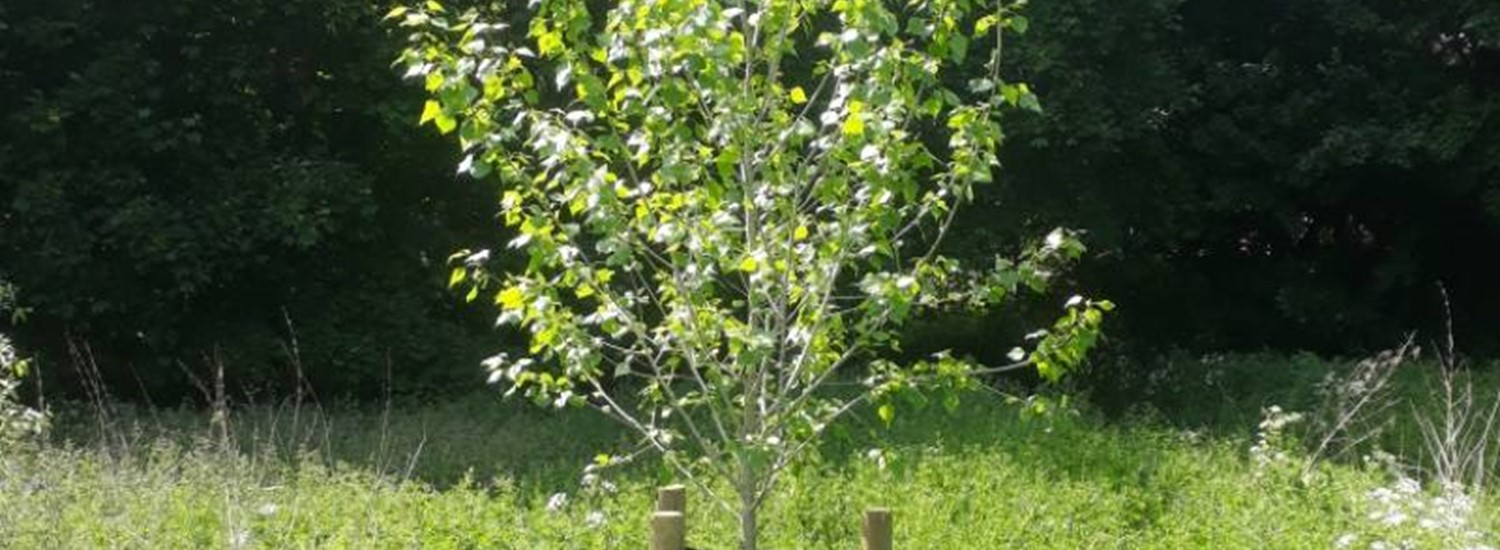Project brings rare black poplar tree back to Sheffield

21 August 2017
A project is underway to bring one of the UK’s rarest native trees back to Sheffield.
The black poplar is a declining species and, according to the Forestry Commission, is the country’s most endangered timber tree.
There are fewer than 1,000 mature trees in the wild, in the UK, and they are most prevalent in areas such as Cheshire, Somerset and East Anglia.
As there are so few black poplars left, it is unlikely they will pollinate each other and therefore unlikely that more trees will grow naturally. The species is also prone to fungal diseases.
But now, a community forestry officer at Sheffield City Council has been working on a project to bring this rare tree back to the city.
Angus Hunter has planted black poplars each year, for the past four years, in Sheffield’s river valleys.
He said: “Black Poplar is generally a tree of Southern river valleys but, with the planet warming, its distribution will move northward with the rising temperatures.
“By planting trees with a more southerly distribution, Sheffield City Council is future- proofing its tree stock for global warming, whilst helping preserve this rare native tree.”
So far, 11 black poplar trees have been planted, at sites including the Shire Brook valley, Waterslacks Road, Liberty Hill, Dyke Vale Road, Lynwood Gardens and Totley Brook.
In the long term, Angus hopes to create groups of both male and female trees, from different genetic sources, in various river valleys across the city.
The overall aim is establishing a viable breeding population of these rare trees in Sheffield.
The black poplar project is part of Sheffield City Council’s overall strategy to plant more trees across the city.
In the 2016-17 planting season, which ran from October 2016 to March 2017, a total of 8,658 trees were planted, including heavy standards, whips, and fruit trees.
Councillor Mary Lea, cabinet member for culture, parks and leisure at Sheffield City Council, said: “Our community forestry team are experts in their field, and I’m really impressed that Angus is driving forward this innovative and exciting project to return the rare black poplar to Sheffield.
“I’m also proud that, across the city, we have been creating the next generation of woodlands and community gardens for future generations of Sheffielders to enjoy.
“This is especially important at a time when we are increasingly cementing our reputation as the UK’s Outdoor City and demonstrating that Sheffield is a city where people of all ages, in all of our diverse communities, can enjoy an array of fabulous green open spaces.”
The city council is also calling for people who think their local housing estate needs some trees to get in touch. Call the Parks and Countryside service on 0114 250050 to suggest where next year’s plantings should take place, during the tree planting season.
Major plantings during the last tree planting season included creating three new urban woodlands in the south-east of the city; at Kenninghall Bank, Fox Lane Recreation Ground and at Pipworth Recreation Ground. Trees planted there included a mix of native woodland species such as English Oak, Hazel, Field Maple, Spindle, Hawthorn and Blackthorn.
In Darnall, a mix of oak, lime, silver birch, Turkish hazel and amalanchier trees were planted at Ouseburn Road Open Space, as part of a wider project also including wildflower and bulb planting, new seating, fencing, and the provision of goal ends and synthetic surfacing to provide a kick-about area for football.
In Sharrow, trees were planted in partnership with trading co-operative Regather, while in Beighton, new trees were planted on a spot of green space between Rosemary Road and Cairns Road with help from Reignhead Primary School pupils.
A pear tree was also planted at Fox Hill Primary School, where the nursery class are helping to look after the tree and watch the pears develop. There are plans to plant more trees in the grounds of the school, which is new and currently has mainly hard landscaping.
The aim of the community forestry team is to plant around 7,000 new trees each year in communities across Sheffield.
This is in addition to Streets Ahead’s tree replacement scheme on the city’s highways. As well as the replacement trees, 600 additional street trees will be planted over the duration of the Streets Ahead contract.